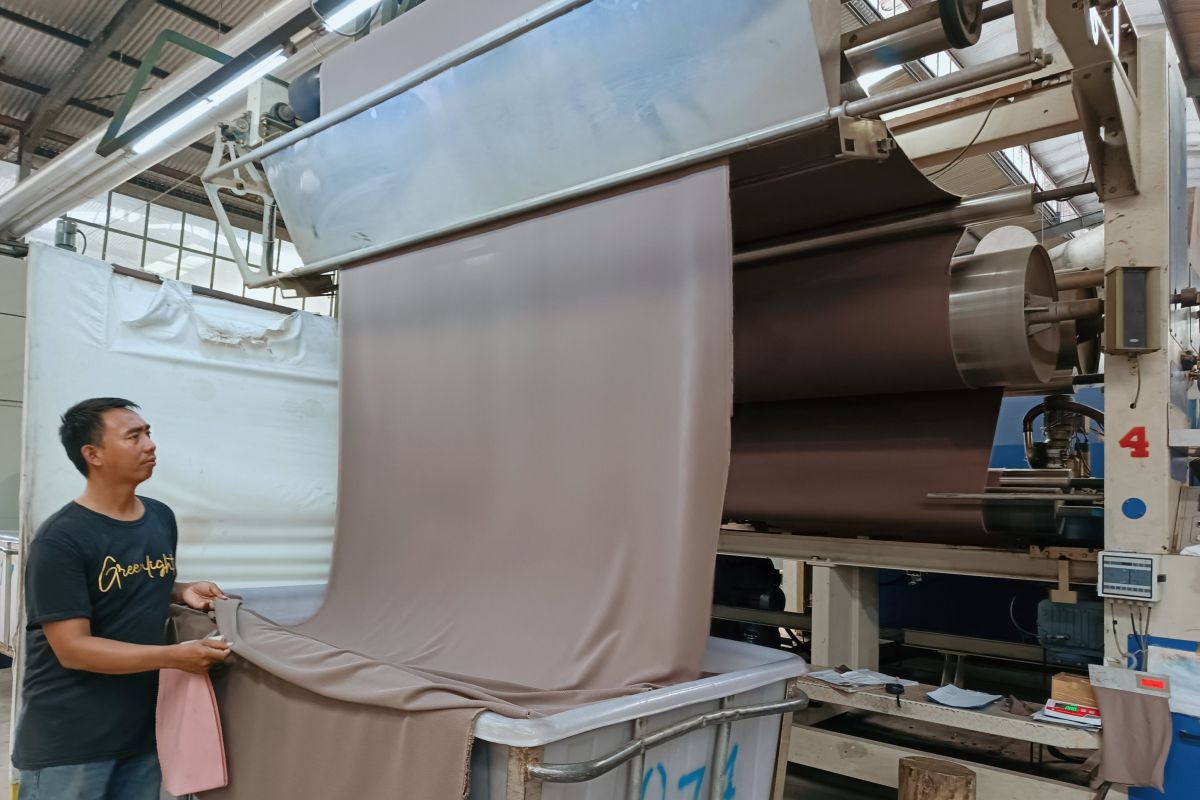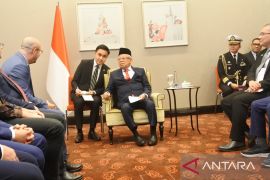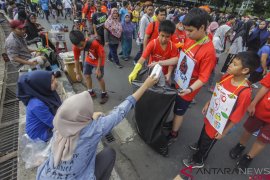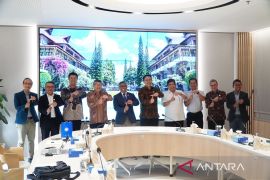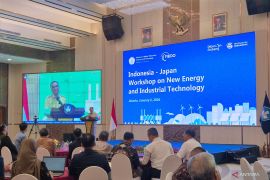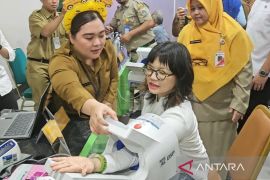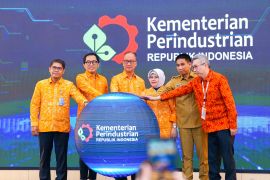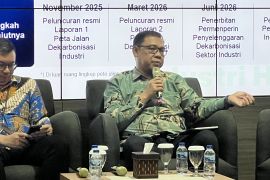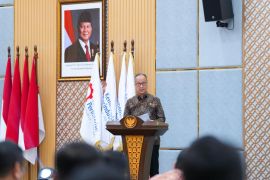Several countries in Europe are currently grappling to maintain industrial stability to avoid being impacted by deindustrialization caused by the energy crisis resulting from the Middle East strife and the war between Russia and Ukraine.
Simply put, deindustrialization is a condition of decline in the contribution of the industrial sector to the national economy. When it occurs in a country, it makes that nation's government rely on the tertiary sector, such as services, to support the country's needs.
The Institute for Research on Economics and Society of the Faculty of Economics and Business of the University of Indonesia (LPEM FEB UI) stated that Indonesia is still far from deindustrialization since, based on government records, the non-oil and gas processing industry (manufacturing) sector is still the backbone of national economic income.
Statistics Indonesia (BPS) noted that Indonesia’s economy in 2023 grew to Rp20,892.4 trillion (1 US$ = around Rp16,276)), with a GDP per capita of US$4,919.7. That year, the manufacturing sector contributed 19 percent to the GDP overall.
During the 2014-2022 period, Indonesia's manufacturing industry GDP recorded an average growth of 3.44 percent per year. The figure is far above the average growth of the world's industry that only stood at 2.35 percent.
In fact, Indonesia's manufacturing added value is at an expansive level above several countries, such as Canada, Turkey, Ireland, Brazil, Spain, Switzerland, Thailand, and Poland, with a contribution of up to US$228 billion.
"It shows that Indonesia is one of the world's manufacturing powerhouses," Industry Minister Agus Gumiwang Kartasasmita remarked.
The big contribution of the national industry to GDP is inseparable from the role of the government and business players that have been striving to maintain industrial climate stability.
Based on the Industrial Confidence Index (IKI) in April 2024, industry players show optimism regarding their business climate, with 72.3 percent of them confident that over the next six months, the business climate will continue to increase.
The high level of optimism is due to the business players' trust in the central government's policies and the potential for economic improvement both nationally and globally.
However, it is not impossible for the Indonesian industry to experience a decline in contribution. This is due to the uncertainty of the geopolitical situation that continues to fluctuate to this day.
To this end, the Ministry of Industry, which is tasked with maintaining the national industrial climate, has prepared strategies to keep deindustrialization away from Indonesia.
Those strategies include the implementation of industrial machine technology update programs as well as the strengthening of human resources through vocational education and training.
Technology update
Technology update or machine restructuring is one of the main programs of the Ministry of Industry to maintain the stability of the domestic industry.
The program provides an opportunity for industry players to boost their productivity through the replacement of outdated equipment with the latest equipment. The mechanism for providing incentives is reimbursement, so it is hoped that industry players will optimize their businesses.
Industry players can propose to become beneficiaries of the program through several stages, namely first registering online through the National Industry Information System (SIINas), administrative checking, administrative verification, reporting of tools that need to be replaced or restructured, determination by the Industry Ministry, and finally, fund disbursement.
One of the manufacturing subsectors that is given equipment renewal incentives is the fabric finishing and fabric printing industry.
The Ministry of Industry allotted Rp50 billion (around US$3.07 million) in 2024 for the implementation of the program, with a target of 59 companies.
One of the beneficiaries of the program is a West Java-based textile company, PT Mahugi Jaya Sejahtera, which has been able to improve its fabric quality as the technology they used has been replaced with the latest one.
As a result, in May 2024, the company succeeded in exporting 300 thousand meters of fabric, with a transaction value of US$350 thousand, to Dubai.
The program is expected to encourage other industry players to boost their productivity so that the manufacturing industry's contribution to the country's foreign exchange can increase and market opportunities in non-traditional markets, such as Central Asia and Eurasia, can be opened.
In 2024, the Ministry of Industry has also allocated funds worth Rp7.5 billion (around US$460,778) for equipment renewal in the wood and furniture processing industry, with a target of 10 companies.
Based on reports from companies that were beneficiaries in the previous year, this incentive has had an impact on increasing company efficiency by 10-30 percent, product quality by 10-30 percent, and company productivity by 20-30 percent.
Strengthening human resources
Quality human resources is one of the important factors to avoid deindustrialization.
To maximize the strategy, the Ministry of Industry, through vocational educational institutions, is providing opportunities for the younger generation to study.
In total, there are currently 22 educational units comprising nine vocational high schools, two Industrial Community Academies (Akom), and 11 Industrial Polytechnics spread across Indonesia, with a total of 17,536 students.
In 2024, through the Industrial Vocational Admission Scheme (Jarvis), the Industry Ministry has provided a quota of 4,796 new students at the polytechnic and community academies levels and 2,730 new students at the vocational school level.
Apart from being imparted knowledge about national industrial management and processing, the students are also given job guarantees upon completion of their education.
In addition, the ministry, through the Industry Training Centers, also carries out a "3 in 1 Training" for people seeking to improve and update their industrial skills. The program provides training, competency certification, and job placement.
In 2023, it was recorded that 33,094 people got a job and certification through the program, surpassing the target of 27,070 people.
Workers who completed the training are, in general, employed to strengthen the textile sector, the food and beverage sector, seafood processing, animation, and the information technology (IT) sector.
Through industrial equipment renewal and the strengthening of human resources, the Indonesian government is hoping that the national industrial climate will remain stable and be optimized to avoid a potential decline in the contribution of the manufacturing sector to the economy.
Related news: Deindustrialization cue for manufacturing industry to grow: minister
Editor: Rahmad Nasution
Copyright © ANTARA 2024
